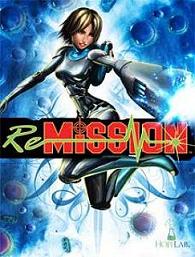Serious Games: Oxymoron or the Key to Citizen Engagement?

How many times have you felt guilty when someone talks about the grand crises in the world: water, energy, food, poverty? You assiduously recycle your bottles, cans and paper, but have a nagging feeling you should be doing something more. Don’t beat yourself up. It’s hard to help when you don’t understand the exact nature of the problem. Now there’s a way: games. Or to be more accurate, serious games. Yes, it sounds like an oxymoron, but serious games are becoming the most popular tool to engage citizens to collaborate and solve world challenges.
Jane McGonigal is the poster child for serious games. A game designer extraordinaire, she also takes a personal interest in designing serious games that motivate players to contribute to solutions for urgent world problems. As she says on her site: “Reality is Broken. Game Designers Can Fix It.” At a talk at TED earlier this year, she explained why she believes games are such powerful enablers: games allow players to experiment with solutions and see their impact long before they attempt them in real life. Even more poignantly, they make players feel empowered to make a difference, an attitude they take back into their real lives. Given that we collectively spend three billion hours a week playing online games, it’s no wonder that the army, the government, and non-profit organizations are interested in getting McGonigal’s help in designing games for positive social change.
Serious games such as Re-mission, which helps young cancer patients understand aspects of their treatment as Roxxi, a female nanobot, enters a human body to fight cancer and related infections, and Darfur is Dying, which lets players experience the humanitarian crisis in Darfur through a range of experiences that mimic life in Darfur, have been particularly popular and effective.
The newest game on the scene: CityOne by IBM, which will be unveiled tomorrow at the IMPACT conference. The game is meant to engage players to think about how to make their cities more efficient and innovative, by measures such as making the city’s water cleaner, or its banks more robust.
One of your missions may be: “Diesel run generators kick on during peak load conditions generating carbon emissions. How can you institute a smarter grid to ensure that those generators do not have to turn on again, ever?”
Sounds complicated? Luckily, IBM has a solution for it which you can use. Oh yes, did we mention that the game has one caveat: your options for successful solutions are limited to IBM products? We haven’t tried the game yet, but regardless of the solution, it may still be incredibly powerful in helping players think deeply about the problem.
The next Games for Change festival is going to be hosted in New York City. If you are in the neighborhood, it’s definitely worth checking out. To underscore how much importance the government is giving to serious games, Aneesh Chopra, the country’s first Chief Technology Office (CTO) is giving the keynote address.
At the end of the day, the only way to get the 70 million Facebook users of the popular game Farmville, in which players tend to a virtual farm, interested in a game about poverty alleviation is to keep it fun and playful. In other words, even serious games are truly engaging only when they’re not too serious.
Ayesha and Parag Khanna explore human-technology co-evolution and its implications for society, business and politics at The Hybrid Reality Institute.




